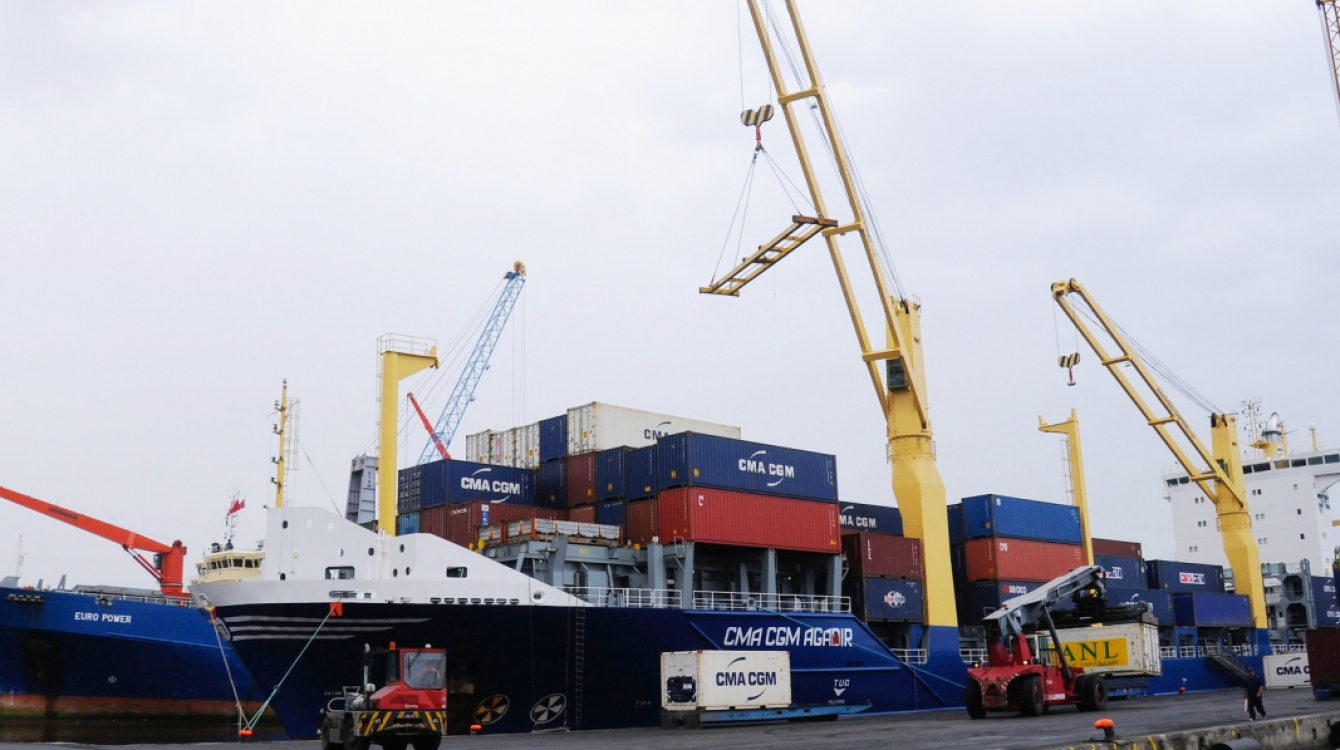The International Chamber of Shipping (ICS) is the world’s leading shipping organization, accounting for about 80 per cent of global merchant tonnage. An ICS study published in March this year titled Protectionism in Maritime Economies found that reducing restrictive trade policies could boost Africa’s post-COVID-19 economic recovery by billions of dollars. For Africa Renewal, Finbarr Toesland interviewed ICS Secretary-General Guy Platten on a range of shipping and trade-related issues, including how the organisation can support the implementation of the African Continental Free Trade Area (AfCFTA). The interview was edited for brevity.

Africa Renewal: Let’s talk about the ICS’ recent study. What were its most striking findings, particularly those relating to trade?
What we found in the report is that non-tariff barriers have a disproportionate effect on GDP and getting rid of them could make a considerable difference in terms of actually increasing a country's wealth. We know that African nations could boost their prospects of a post-COVID-19 economic recovery by removing some of these restrictive maritime trade policies.
Currently, the global maritime trade is worth $14 trillion. Africa has a lot of potentials to become a maritime trade hub. We are suggesting that if members of the African Union were to just halve their trade restrictions, that could lead to a 1 per cent increase in GDP for an average African economy.
What are some of the measures that countries can take to improve trade?
Protectionist measures really hinder free trade. There are many administrative hurdles to overcome in many countries just to establish a business or engage in trading. Getting rid of some of these hurdles and looking at how standards are set will make a significant difference.
Like we saw with Brexit, it's not the tariffs that matter the most; it's the non-tariff barriers that stall trade. For example, the imposition of complex standards that require the checking of all goods, on the face of it may seem perfectly reasonable, but it can hinder trade.
It’s also about looking at all the areas of business. From the barriers you face to import and export goods, to the standards on the use of ships.
What role can ICS play in the successful implementation of the AfCFTA?
Where we can help is to establish a dialogue between ourselves, the contacts we have and the African Union; to explain in perhaps more granular detail what practical steps can be taken to increase trade. We want to support the implementation of the AfCFTA and create a good dialogue between the AU and the global shipping industry. We can help African countries harness the goals of the blue economy strategy.
We know that free trade promotes wealth: it can lift millions out of poverty. And shipping is the lifeblood of commerce.
Our Protectionism in Maritime Economies index ranks nations according to how restrictive their trade policies are, based on factors including licensing rules, government integrity and tariffs. We'll revisit this in a few years to see if any country has introduced or removed protectionist policies so that such countries can be moved up or down in the ranking.
Do you believe the AfCFTA will boost intra-African trade?
Absolutely. It's difficult to gain a breakdown of the data at this stage, but I think the conversation about what free trade means is vital. It is important to explain the various non-tariff barriers that are in place currently and try to persuade nations that removing some of those barriers will be economically advantageous.
Discussion and debate may change some perceptions. For example, in terms of maritime trade flows, goods exported and imported from Africa account for just 7 per cent and 5 per cent of the global trade totals respectively. Now, compare that with Asia where the figures are 41 per cent and 62 per cent respectively. There's a huge potential in the blue economy that African countries can take full advantage of.
According to a World Bank assessment, the implementation of the AfCFTA, alongside trade facilitation measures that cut red tape and simplify customs procedures, will drive billions of dollars in potential income gains.
The impact of COVID-19 has been felt across the world. With regards to shipping, what challenges has COVID-19 brought to trading in Africa?
It’s not just in Africa. With countries around the world closing their borders in response to COVID-19, we had a crisis of our global workforce that could not get off or go on ships.
The shutdowns in some countries have not ended, remember, and that could impact recovery. It’s important to not lose sight of the longer-term picture in terms of post-COVID-19 recovery.
What does efficient shipping look like for Africa?
It’s having ships being able to trade freely in the ports; it's having services that facilitate the import and export of goods without too many administrative barriers. The entire supply chain becomes more efficient when you're not stopping things from being loaded onto ships or being discharged from the ships. It’s about proportionate regulation.
How do you see the future of trade in Africa?
Africa has a huge global potential. The continent has an increasingly well-educated workforce. It can take advantage of all these opportunities and become a maritime hub for the world. I genuinely believe that Africa is strategically well placed to do just that.
With a population of 1.3 billion people, consumer buying power is huge. Efficient maritime transport services can really help in this whole process.

















